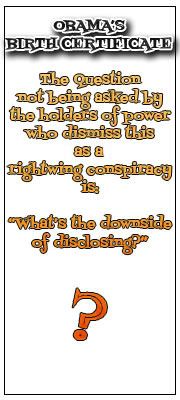It's going to be a busy day.
 Stocks and oil plunged and Treasury bonds rallied this morning in a sign of the times after lawmakers quickly pointed fingers.
Stocks and oil plunged and Treasury bonds rallied this morning in a sign of the times after lawmakers quickly pointed fingers.
In typical political style, after the bailout bill wasn't passed, all on Capitol Hill were doing nothing but pointing fingers at each other, as usual, and as if they didn't have anything more important to do. Now I don't normally talk about Democrats vs Republicans however, ya gotta focus on the numbers on this one.
The package, which was backed by BOTH the Democratic and Republican congressional leadership as well as President Bush, failed in the House by a vote of 225-205. A majority of the Democrats voted for the bill. A majority of the Republicans voted against the bill. After the vote, a White House spokesman said President Bush was "very disappointed" that the House failed to pass the bailout.
The Republican House leadership blamed Pelosi for giving a partisan speech before the voting that they said alienated House Republicans.
While thanking Treasury Secretary Henry Paulson for negotiating on the bill, Pelosi said on the House floor that the Democrats had insisted that the bill "protect the American people and Main Street from the meltdown on Wall Street."
Pelosi also said the cost of the bailout "is a number that is staggering, but tells us only the costs of the Bush administration's failed economic policies -- policies built on budgetary recklessness, on an anything-goes mentality, with no regulation, no supervision, and no discipline in the system."
After the vote, Boehner said, "Americans are angry, and so are my colleagues. They don't want to have to vote for a bill like this, and I understand that.
"I think that we need to renew our efforts to find a solution that Congress can support. I do believe that we could have gotten there today had it not been for this partisan speech that the speaker gave on the floor of the House," he said.
But Democrats dismissed the Republican complaints, saying the Republican leadership failed to convince their members to support the bill.
"They lost 2-1 on their own side, voting against their president, their presidential candidate, and against every leader in their own party," one Democratic source said.
And one Democratic aide said, "we delivered our votes. They did not deliver theirs."
Before the vote, many House Republicans expressed opposition to the bill, saying it departed from free market principles. Republican congressional aides also said calls from constituents were running 10 to 1 against the legislation.
Rep. Jeb Hensarling, a conservative Texas Republican, said before the vote, "The relevant test is, when you look at the good in the bill, when you look at the bad in the bill -- does it take America in a direction that you believe America should go? By that test, Madam Speaker, I will vote no on this legislation."
"I fear that ultimately it may not work. I fear that it is too much bailout and not enough workout. I fear that taxpayers may end up inheriting the mother of all debts," he added.
Another Republican called on members to vote their conscience.
"Ask yourselves why you came here and vote with courage and integrity to those principles. If, like me, you came here because you believe in limited government and the freedom of the American marketplace, I urge you vote in accordance with your convictions," Rep. Mike Pence, R-Indiana, said.
"Stand up for limited government and economic freedom. Stand up for the American taxpayer. Reject this bailout and vote no on the emergency economic stabilization act," he said.
The Dow Jones industrials fell to a nearly 700-point deficit in the moments after it became clear that the legislation could not muster the support it needed to pass the House. The Dow recovered slightly, and was down about 550 points after 3 p.m., with less than an hour remaining in the day's session.
The Standard & Poor's 500 Index fell as much as 7.2 percent, the most since October 26, 1987, as 490 companies declined. The MSCI World Index of 23 developed markets sank 5.9 percent, the steepest decline in the measure's 38-year history. Trading on Brazil's Bovespa was halted after the main stock index plummeted 10 percent. The Euro and the Pound sank and bonds rose as the governments raced to prop up banks infected by a growing U.S. mortgage losses. Crude oil futures tumbled more than $11 a barrel.
The British pound dropped the most against the dollar in 15 years after European governments stepped in to save Bradford & Bigley PLc, Fortis and Hypo Real Estate Holding AG. European governments stepped in to rescue Fortis, Bradford & Bingley and Hypo Real Estate as tremors from the U.S. credit crisis were felt around the world. The U.K. Treasury seized Bradford & Bingley, Britain's biggest lender to landlords, which governments in Belgium, the Netherlands and Luxembourg threw an 11.2 billion-euro ($16.3 billion US) lifeline to Fortis. Germany guaranteed a loan to Hypo. The cost of borrowing in Euros for three months soared to a record as banks hoarded cash.
THE MSCI World Index of 25 developed markets lost 73.86 points to 1,1765.51, giving it the steepest intraday percentage retreat since its creation in 1970.
The MSCI All-Country World Index of 48 nations lost up to 6 percent, the most in its 21-year history.
The S&P 500 retreated 74.93 points to 1,138.08 at 2:29 p.m. in New York, and earlier touched a four-year low of 1,125.99. The news about Congress not accepting the bailout even made Apple Inc., the computer maker whose shares surpassed $200 last year, dropped the most in eight months. Apple fell as much as 22 percent, the most since September 2000, to $100.59.
Goldman Sachs Group Inc. and Morgan Stanley, the two biggest securities firms before the converted to banks last week, sank in New York trading after the the U.S. House rejected the bailout. Goldman dropped as much as 24 percent in the NYSE, while Morgan Stanley fell as much as 19 percent.
The Federal Reserve will pump an additional $630 billion into the global financial system, flooding banks with cash to alleviate the worst banking crisis since the Great Depression.
Europes Down Jones Stoxx 600 Index sank 5.5 percent to 251.43, the lowest since January 2005.
The MSCI Asian Pacific Index fell 2.1 percent.
The Irish Overall Index slumped 13 percent, the most in its 25-year history.
The U.K's FTSE 100 Index has lost 15 percent in September, the steepest monthly drop since the October 1987 stock-market crash.
India's Sensitive index tumbled 3.8 percent.
Russia's Micex Index fell 5.5 percent.
Brazil's Bovespa slumped 7.1 percent.
More updates later today as I find more information........................................
SOURCES:
Bloomberg.com, "Stocks, Oil Plunge After Congress Rejects Bailout; Bonds Rise."
Bloomberg.com, "Fed Pumps Further $630 Billion Into Financial System"
The New York Times, "Oil Falls Sharply on Renewed Economic Fears"
The New York Times, "Dow Falls More Than 500 Points"


0 Responses to "It's going to be a busy day."
Post a Comment